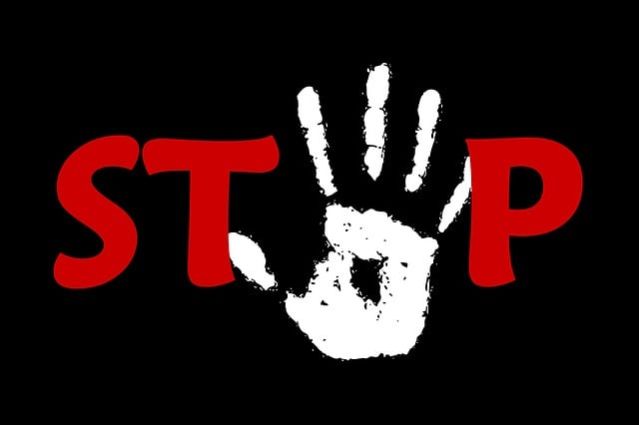Domestic Violence
Denial for the Perpetrator and Survivor of Intimate Partner Abuse
Intimate partner abuse invokes denial for both, although for different reasons.
Posted April 29, 2024 Reviewed by Michelle Quirk
Key points
- Intimate partner abuse, mostly psychological in nature, serves the perpetrator in overpowering their partner.
- The perpetrator externalizes responsibility for the abuse. The survivor develops self-blame for the conflicts.
- To stop the abuse, it's up to the survivor to recover and hold their partner accountable for their abuse.

When intimate partner abuse is occurring within a couple, it’s not unusual for both the abusing partner and the targeted partner to exercise denial of the abuse that’s happening, and for different reasons. The defenses of denial and minimization distort the reality of what is actually taking place. This alone underscores the profound complexity of the nature of psychological abuse and contributes to prolonging relationships. For reality to be recognized, it takes one partner—almost always the survivor—who needs to stop the “song and dance” if anything at all is going to change for them and, only then, possibly learn what’s possible in the relationship.
Intimate Partner Abuse
Intimate partner abuse is when one partner exercises power and control over the other. Psychological abuse is powerful, hard to see, and more prevalent than realized. Women account for victims of abuse more than men, yet men who are victimized by an intimate partner can experience the same troubling effects including denial and minimization of the abuse.
For decades, I’ve conducted recovery groups for women of controlling partners and can say that every single woman needed to recognize at the outset of their recovery that they are in a state of denial about their abusive experience. This state of mind, I enlighten them, is inherent to the nature of the coercive abuse and deeply harmful—it’s the not knowing that puts them at risk and keeps them there.
Perpetrator’s Denial
The coercive partner who seeks to be in charge in an intimate relationship utilizes many tactics to obtain and maintain this power. Central to this stance is the defense of externalization that shows up as excessive blaming and holding their partner responsible. Attempts by their partner to speak up about their perspective or push back results in them often being accused of being the abusive one or the “gaslighter.” Thus, the abuser sustains a deep denial of their hurtful abusive behavior sidestepping taking any responsibility at all costs.
Survivor’s Denial
The recipient of psychological abuse from an intimate partner usually doesn’t see or experience coercion at the beginning of the relationship. In part, it’s intentionally not demonstrated by the interested partner who is “courting” to win over someone of interest. It’s often a slow and insidious process where coercive intents are embedded in seemingly normal behavior that can be missed. Eventually, it shows up in earnest upon living together, marriage, pregnancy, or the birth of the first child.
Concurrently, a coercive partner’s behavior fluctuates and can be “kind and caring” at times. It’s during these times when the person they met while “courting” might appear to have returned—giving hope for lasting change—that denial of the previous hurtful behavior kicks in. Sadly, these favorable periods never last and only serve to offer ongoing intermittent hope and reinforce denial of the abuse.
In addition, being the recipient of blame, false accusations, threats, gaslighting, degradation, etc., profound losses slowly emerge. It’s not unusual for a survivor to experience self-doubt, confusion, indecisiveness, emotional exhaustion, and feeling unsure and incapable. Most importantly, they are at risk of losing trust in their own perception and judgment. From this place, not recognizing the coercive abuse is understandable. From this place of denial or minimization, it can become more about survival—getting through the weeks and months as the survivor works, parents, and carries on.
Thus, the survivor’s denial and minimizing develop as a result of many conditions:
- Coercive persuasion, brainwashing, and wounding from their partner
- As a coping mechanism to get along and survive
- Holding onto the dream of a loving partner who can make a wonderful parent
- A culture that generally does not recognize psychological abuse
Recovery Helps
It’s the denial that distorts one's perception of reality in a way that keeps one trapped and powerless. Moving out of denying and minimizing requires seeing clearly the coercion in an intimate partner’s behavior. It’s eye-opening to see this powerful influence that impacts intimate relationships and causes negative health issues and disempowering effects.
Recovery requires addressing any fear of making changes and fear of talking about painful feelings, including looking at the negative impact of their partner’s control on the children as well. It’s the fear that can keep the belief in the illusion that there’s hope for change—when there isn’t. It requires seeing the shift to positive behavior in a partner as a manipulation—not an authentic state of caring.
The recovery process is very effective for the survivor in finally shifting responsibility for the abuse to the rightful owner. It’s an important step that lends itself to getting emotionally stronger and trusting in one’s perception and judgment again. These are the areas of strength necessary for the survivor to decide what to do going forward that’s in their best interest.
©Lambert




